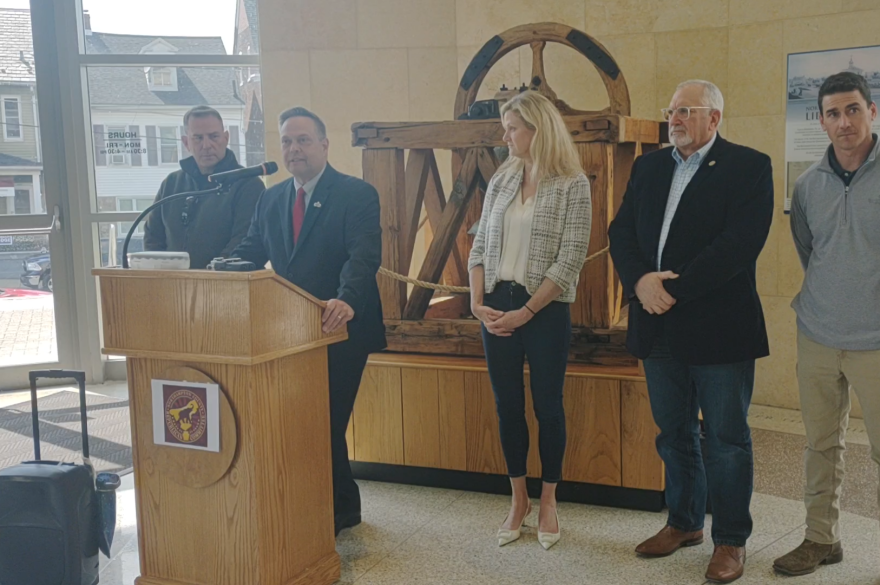EASTON, Pa. — After failing to find a candidate to carry the party's mantle in the May primary, Northampton County conservatives have an unexpected opportunity to place a Republican on the November ballot for district attorney.
The GOP's odds of getting one of their own elected as Northampton County's top law enforcement officer looked all but dead after Democratic incumbent Terry Houck won the Republican nomination with a write-in campaign in May.
But Houck suddenly exited the race Monday, citing the sky-high expenses the November campaign against Democratic nominee Stephen Baratta would likely demand.
- After winning the Republican nomination in May, Democratic incumbent Terry Houck dropped out of the Northampton County district attorney's race Monday
- His departure allows Republicans one last chance to nominate a candidate of their own to the November election against Democrat Stephen Baratta
- Republicans have struggled to find a nominee for the race after mounting just one challenge for the office in the past 30 years
Even though Houck is a registered Democrat, state law allows party officials to nominate a replacement if their candidate drops out before the deadline. That means Republicans have until Aug. 24 to handpick a candidate to enter the race without having to go through the usual process of collecting signatures or mounting a primary race.
"I am inquiring with various Republican attorneys to see what their interest is," Glenn Geissinger, chair of the Northampton County Republican Committee, said Tuesday morning.
Clock is ticking
Assuming a potential candidate emerges, Geissinger said he would need to convene an emergency meeting of the county GOP's executive committee so it could formally nominate the candidate ahead of the deadline.
But finding a candidate willing to enter the race so late might be easier said than done.
Mounting a competitive, countywide campaign for a high-profile office can cost upward of $100,000 to pay for campaign managers, mailers, internet ads, fundraisers and yard signs.
Baratta, a retired judge who previously served as first assistant district attorney in the 1990s, committed more than $150,000 in resources just in the primary. Since then, he's spent three months gearing up for another rematch against Houck.
By comparison, a Republican latecomer to the race would have less than 11 weeks to build a campaign, raise funds and introduce themselves to voters before Election Day.
But Republicans have struggled to find a candidate for months. Baratta kicked off an unusually negative campaign against Houck in January, a month earlier than usual. Even with the prospect of a wounded Democrat emerging from the primary, Republicans couldn't attract a candidate to the race.
Few (just one, actually) takers
In fact, Republicans have only had one candidate run for district attorney in the past 30 years. Longtime incumbent John Morganelli never faced a challenger after winning the office in 1992, and Houck cruised to an 11-point victory against Republican opponent Tom Carroll in 2019.
Carroll's campaign suffered due to reports he left the district attorney's office years earlier for allegedly placing a gorilla doll on a Black co-worker's desk. Since then, Carroll found himself in a new controversy after he served as one of Donald Trump's false electors in Pennsylvania following the 2020 presidential election.
Houck won the Republican nomination in May in large part because there was no Republican on the ballot. Gessinger said he and Houck never discussed the incumbent Democrat switching party allegiances to potentially run with the local party's support.


